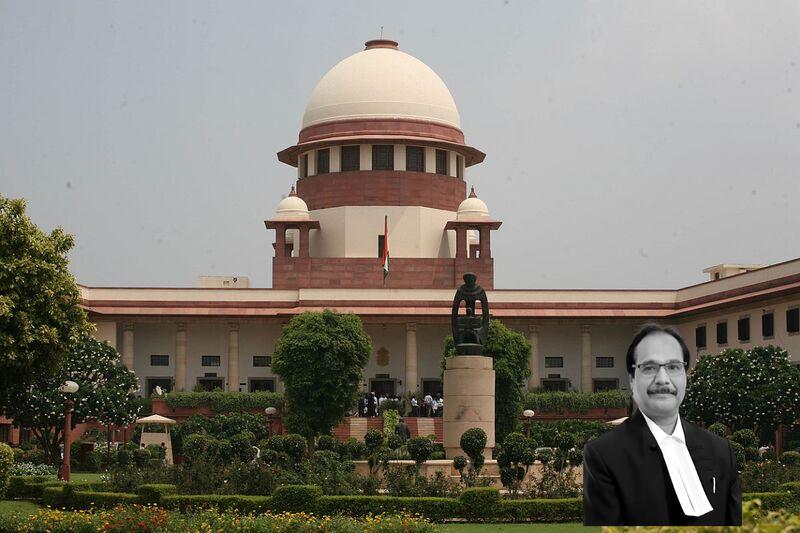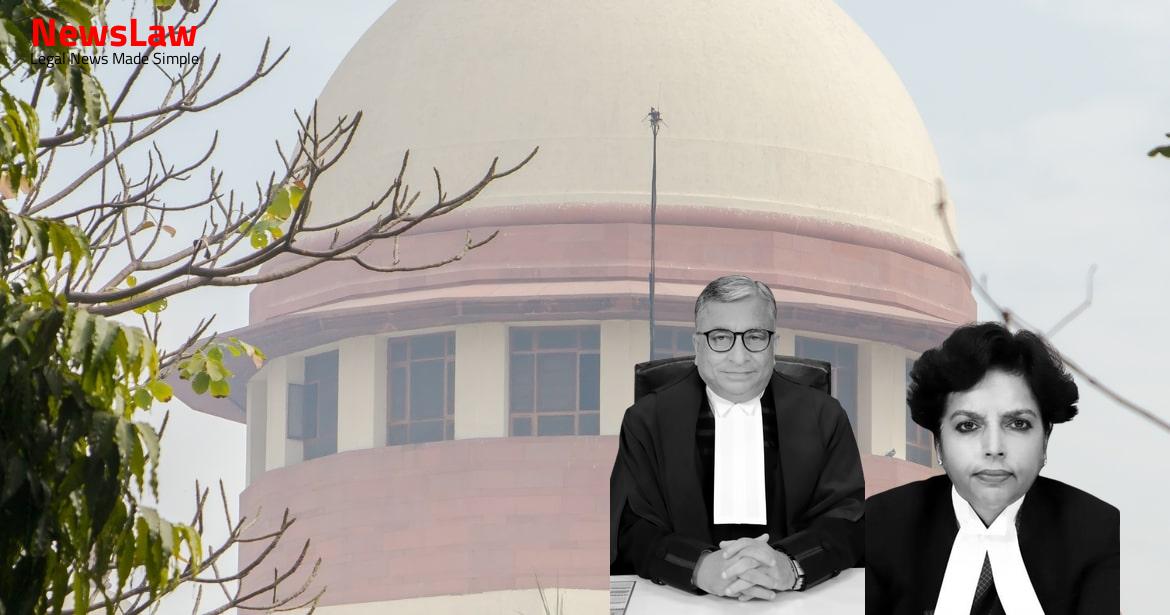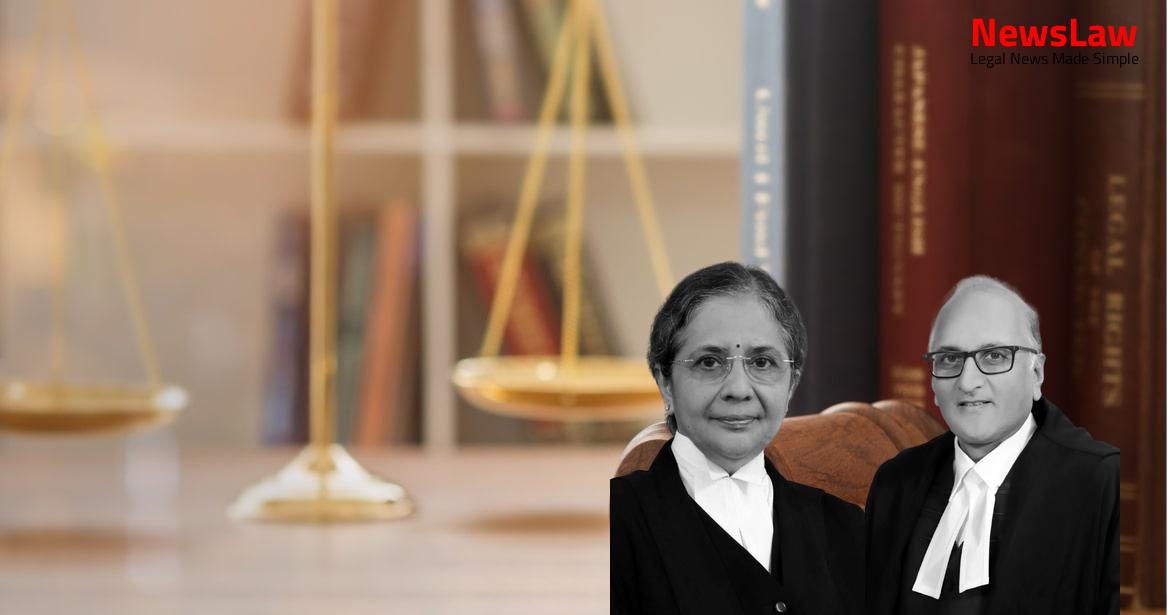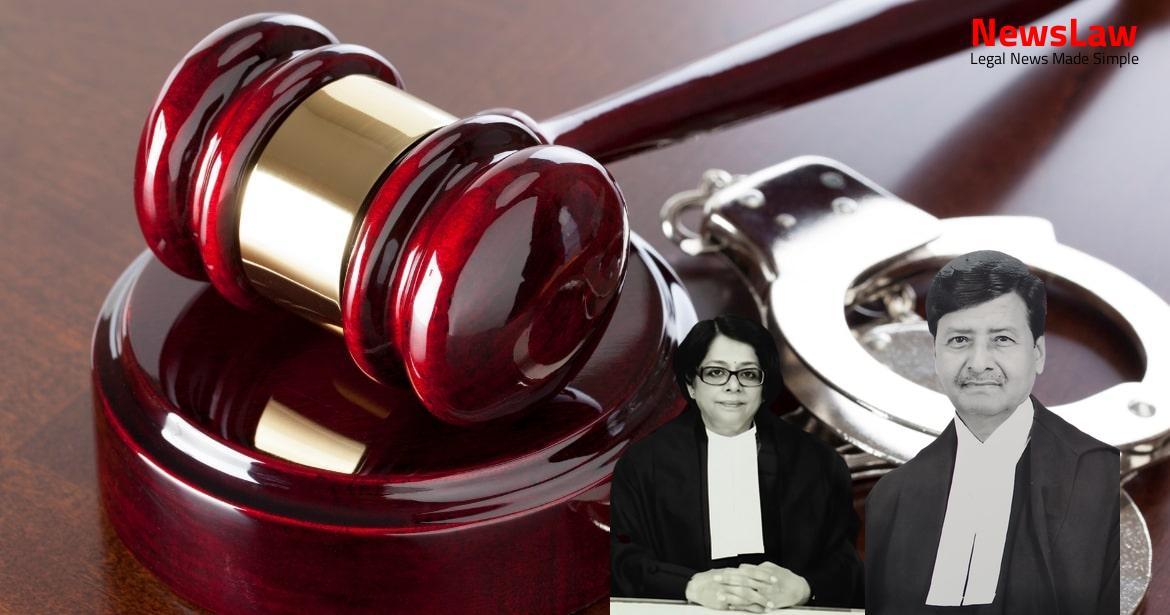2, the First Appellate Court allowed the appeal in part holding that the plaintiff/respondent no.
At the same time, the First Appellate Court granted liberty to the plaintiff to work out her remedy for mesne profits with regard to ‘C1’ schedule property and items 25 to 30 in ‘B’ schedule properties by filing a separate proceeding under Order 20 Rule 12 of CPC. As against this, the High Court in second appeal has held that after the death of the plaintiff’s husband, namely, Elangovan, and her mother-in-law, the plaintiff is entitled to 1/7 share out of 1/8 and 1/16 of her mother-in-law’s share in the ‘B’, ‘C’ and ‘C1’ schedule properties. 1 to 4 from the income earned from the ‘B’ schedule properties and ‘C1’ schedule properties are also joint 4 family properties, therefore, the plaintiff is entitled to 1/8 share in all the properties.
The trial Court categorically held that the properties mentioned in schedule ‘B’ and ‘C’ are jointly family properties and the plaintiff is entitled to her share therein to the extent of 1/8.
(C) Whether the dismissal of suit filed by the plaintiff in respect of the items of properties 6 standing in the name of D1 to D4 and D8 is sustainable?”
Basing on the evidence available on record, the High Court found that the properties and the business of the joint family continued to be in joint possession of both the parties and, therefore, the status of the joint family both, backwards and forward must be taken into account by the Court.
(2) Notwithstanding anything contained in sub- section (1),— (a) any property inherited by a female Hindu from her father or mother shall devolve, in the absence of any son or daughter of the deceased (including the children of any pre-deceased son or daughter) not upon the other heirs referred to in sub-section (1) in the order specified therein, but upon the heirs of the father; and (b) any property inherited by a female Hindu from her husband or from her father-in-law shall devolve, in the absence of any son or daughter of the deceased (including the children of any pre-deceased son or daughter) not upon the other heirs referred to in sub- section (1) in the order specified therein, but upon the heirs of the husband.
Rule 3.—The devolution of the property of the intestate on the heirs referred to in clauses (b), (d) and (e) of sub-section (1) and in sub- section (2) to section 15 shall be in the same order and according to the same rules as would have applied if the property had been the father’s or the mother’s or the husband’s as the case may be, and such person had died intestate in respect thereof immediately after the intestate’s death.” 12.
A combined reading of Section 15(1)(a) and Section 16 of the Act would make it manifest that the property of a female Hindu dying intestate shall devolve, firstly, upon the sons and daughters (including the children of any pre-deceased son or daughter) and the husband. The impugned judgment rendered by the High Court shall stand modified only to the extent that the plaintiff- respondent no.
Case Title: SACHIDHANANDAM Vs. E VANAJA AND ORS.
Case Number: C.A. No.-003667-003667 / 2018



